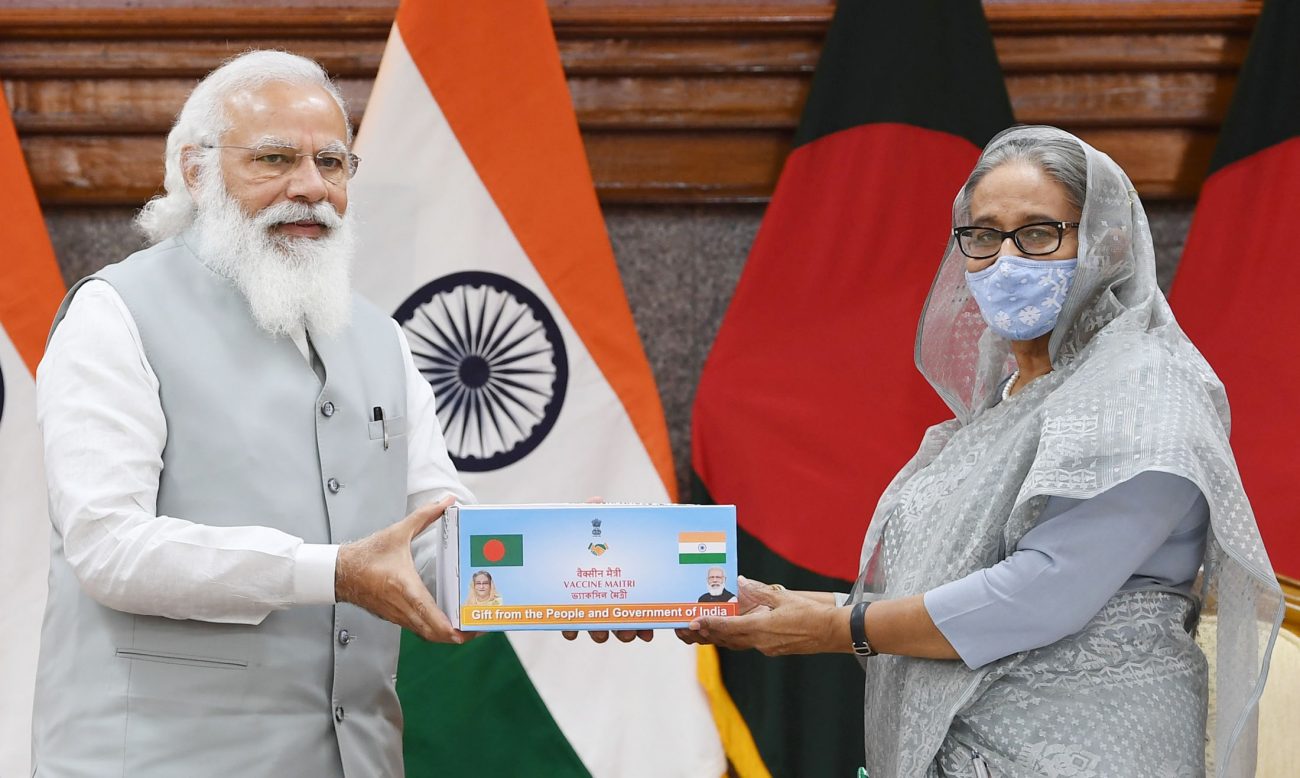OPED By: Salah Uddin Shoaib Choudhury
Bangladesh government, through a gazette notification, has banned ultra-Islamist and Pakistan-linked Jamaat-e-Islami (JeI) and its student wing Chharta Shibir as terrorist organizations under section 18/1 of the Anti-Terrorism Act of 2009. English meaning of Jamaat-e-Islami is congregation of Islam and Chhatra Shibir stands for student camp.
According to a report published in Russia’s leading daily newspaper, the Rossiyskaya Gazeta, Jamaat-e-Islami is designated as a terrorist organization and banned in Russia.
Bangladesh authorities banned Jamaat-e-Islami on August 1, 2024, as confirmed in a notification issued by the Public Security Division of the Ministry of Home Affairs.
The ban of Jamaat, Chhatra Shibir, and other associated organizations came through an executive order under Section 18(1) of the Anti-Terrorism Act. Prior to the ban, the law ministry gave its legal opinion and forwarded the file to the home ministry.
Afterward, Law Minister Anisul Huq told reporters that these groups would no longer be able to engage in politics under their current names.
Government ministers had been accusing Jamaat and Chhatra Shibir of involvement in the violence surrounding the quota reform movement.
Then, on July 29, top leaders of the 14-party alliance, led by the Awami League, agreed to ban Jamaat and Shibir during a meeting chaired by Awami League chief Prime Minister Sheikh Hasina.
Previously, in 2013, the Election Commission canceled Jamaat’s registration following a court ruling.
Jamaat appealed the High Court’s decision, but the Supreme Court’s Appellate Division dismissed the appeal on November 19, 2023, upholding the party’s registration cancellation.
It may be mentioned here that, during Bangladesh’s war of independence, the first government headed by Bangabandhu Sheikh Mujibur Rahman banned Jamaat-e-Islami for its role in opposing the country’s independence and collaborating with Pakistani occupation forces. Later, following Bangabandhu’s assassination, military dictator General Ziaur Rahman lifted the ban, thus enabling Jamaat-e-Islami to resume its activities in the country.
Jamaat-e-Islami was founded by Muslim Brotherhood prodigy Sayyid Abul A’la Maududi with the notorious agenda of Islamic conquest and “bringing the world under the flag of Islam.” A few years ago, the International Crimes Tribunals in Bangladesh described JeI’s role during the war of independence in 1971 as an active cohort of Pakistani occupation forces. JeI played a vital role in forming the Pakistani army’s auxiliary forces, such as the Razakar, Al-Badr, Al-Shams, and the Peace Committee, which actively participated in atrocities against Bengali freedom fighters, especially Hindus. Hundreds of thousands of Hindu men, women, and children were massacred by JeI and its forces, while a large number of Hindu girls and women were raped.
It may be mentioned here that Jamaat-e-Islami is also banned in India, and since 2003, it has been designated as a terrorist entity by the Russian Federation.
Declaring ban on Jamaat-e-Islami, Amit Shah, Union Home Minister of India in a tweet stated, “Pursuing PM Narendra Modi ji’s policy of zero tolerance against terrorism and separatism the government has extended the ban on Jamaat-e-Islami, Jammu Kashmir for five years.

The organization is found continuing its activities against the security, integrity, and sovereignty of the nation. The outfit was first declared an “Unlawful Association” on 28 February 2019. Anyone threatening the security of the nation will face ruthless measures”.
The Pakistani branch of Jamaat-e-Islami has remained the most prominent due to its involvement in electoral politics. In the 1950s, Jamaat-e-Islami Pakistan launched a militant student wing, Islami Janiat-e-Talaba, which successfully gained control of many urban colleges and universities, often through violent tactics. The student wing, which maintained control in many areas until 1988, marked Jamaat’s first use of violence.
Jamaat-e-Islami maintains deeper links with various militancy outfits, including Gaza-based Hamas and Palestinian Islamic Jihad (PJI). It also maintains deeper ties with the Muslim Brotherhood. This dangerous Islamist terrorist entity has had a presence in Europe since the 1960s, while it has a prominent presence in the United States.
In Afghanistan, Jamaat-e-Islami’s branch – Jamiat-e-Islami was founded in 1972 by Burhanuddin Rabbani. It followed the ideology of Abul A’la Maududi. Hezbi Islami broke away from Jamiat-e-Islami in 1975-1976 – led by Gulbuddih Hekmatyar, its ethnic make-up was overwhelmingly Ghizal Pashtun. Its less moderate stance won it the backing of Jamaat-e-Islami Pakistan and Pakistan’s military dictator, General Zia-ul Haq.
In the United Kingdom, the US Islamic Mission, being inspired by the Jamaat-e-Islami Pakistan and “Islamic revivalist teachings of Abul A’la Maudidi – was founded by members of the East London Mosque in 1962. This radical Islamic terrorist entity has been silently spreading its network through England – mostly through South Asian immigrants. According to The Columbia World Dictionary of Islamism, Jamaat-e-Islami branches in England have followed Pakistani immigration to South Africa and Mauritius, as well as the United Kingdom.
The United States has been a strong defender of Jamaat-e-Islami, repeatedly calling upon Bangladesh authorities to lift the ban on JeI and allow it to participate in the country’s electoral process.
Washington also vehemently opposed Bangladesh’s war of independence, while the Soviet Union and India directly supported the Bengali freedom fighters and extended all-out support in the country’s war of independence.
From July 17, Jamaat-e-Islami, along with Al Qaeda-connected Bangladesh Nationalist Party (BNP) perpetrated countrywide mayhem by hijacking student’s protests demanding reform in quota system in government jobs.
Since then, the Jamaat-BNP nexus, along with other militancy and terrorist groups, have damaged public property worth hundreds of millions of dollars, while such acts resulted in an Internet outage for more than a week that cost over US$7 billion in economic loss to Bangladesh.
Following the ban, Jamaat-e-Islami activists are reportedly trying to bring out processions in different parts of the country, while members of law enforcement agencies are expected to seal the offices of this banned entity alongside its publication house.
- Salah Uddin Shoaib Choudhury is an internationally acclaimed multi-award-winning journalist, writer, research-scholar, and Editor, Blitz. He regularly writes for local and international newspapers. Follow him on X @Salah_Shoaib
- VIEWS PERSONAL OF THE AUTHOR




